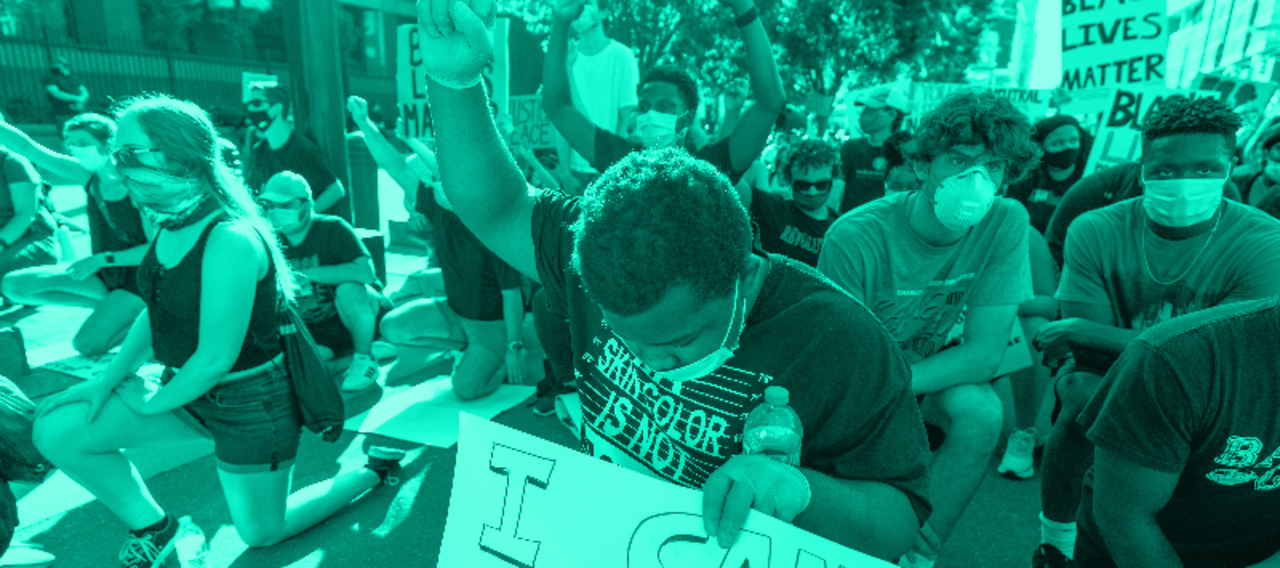The April 6 discussion in the Critical Conversations series of panel discussions addressing systemic racism sponsored by the UMKC Division of Diversity and Inclusion. It was the third of the 2021-22 school year and the eleventh in the series.
The Critical Conversations series is a part of Roos Advocate for Community Change, a campus-wide initiative launched in June 2020, which highlights thoughtful action on campus and in our community to ensure lasting and comprehensive changes. The goal of each Critical Conversation discussion is to enlighten, educate and explore the causes and potential cures for racism. Attendance to the discussions is free.
Panelists for this session included:
Gary O’Bannon, executive in residence, Henry W. Bloch School of Management, moderator
Jenny Aktar, UMKC student moderator
Kimberly Beatty, Ed.D., chancellor, Metropolitan Community College
Mark T. Bedell, Ed.D., superintendent, Kansas City Public School District
Laura Evans, business and education advisor-in-residence, Ewing Marion Kauffman Foundation
Amos Jaimes, UMKC Financial Wellness Center
Excerpts from the conversation are below. To view the complete recording of the conversation, click here.
Determining the value of college educations
Jaimes: I found great value in the learning communities with my peers, and talking deeply about theories and thoughts, and when there were other people and students of color in the room, we could really talk about our own backgrounds and connect. I found all of my best friends and fiancé within student organizations.
Evans: I came from a small, rural farming community and went to one of the largest colleges in the United States. It opened my perspective, and I developed a community where I learned to think and communicate more effectively. The academic challenge created a deeper work ethic in me for learning.
Beatty: I went to Morgan State University, a historically Black college. I wanted to know more about my culture and the sense of community.
Measuring the value and costs of a college education
O’Bannon: College costs continue to skyrocket, which impacts all races, ethnicities and genders. Loan interest rates have a greater impact on underserved students. But there's a report by the College Board that show that an average African American male with a college degree earns roughly twice that of someone who only holds a high school diploma.
Evans: What we know about how college translates to earnings is entirely a historical perspective, and the cost has gone up exponentially. We know that the world of work is changing rapidly. I would just caution us to not just look at data as we're making a decision about the value. I think the other thing I would point out, is what we perceived to be the value of our experience is not financially measurable.
Impact of major selection and experience
Bedell: College itself is a wonderful experience. Programs are developed to help you get ready and ultimately figure out what your passion is. I tell people that you should reflect on why you want to go to college and your desired outcome. It’s about what you decide to make out of it – and it’s not just about the money. It’s about passion. Everything else tends to work itself out down the line.
Evans: Some employers will be attuned to a particular major or set of skills. But most employers are looking for the most durable skills -- problem solving, the ability to communicate, the ability to collaborate. You may have acquired those skills in internships, but it could also be volunteer or extracurricular experiences. There are lots of ways to engage in the world and develop the kinds of durable skills that will help you to transition from what you studied to your initial job.
The value of community college
Beatty: Community college is not a replacement for four year colleges. It is a pathway and an affordable, local and convenient option. In Missouri, any courses that you take at Metropolitan Community College transfer directly to any of the four-year public universities, and often private ones. For people who need to work or have families and need flexibility they are an option.
Bedell: The A+ Scholarship Program (which provides scholarship funds to participating community colleges to eligible graduates) can really benefit students and allow them to knock out some of their core prerequisites.
Support for enrollment
Jaimes: Our office has conversations at events with students where we will sit down and help them fill out their FAFSA, because that is a barrier for a lot of students. This can prolong their ability to receive aid. We saw $3.7 billion in Pell Grants not being awarded to students, because they did not complete the FAFSA.
Impact of COVID-19
Bedell: We’ve been able to document that (COVID-19) has significantly impacted our kids. A lot of the work we did earlier around real-world learning was put on hold during the pandemic.
Jaimes: We saw a lot of our students working many hours to make up for the loss of income. Their households were severely changed; their ability to connect with peers in high school, but also the ability to engage in community college.
New Perspectives
Bedell: Traditionally, we have to be in school for the same hours. What if we created master schedules that allow for kids to operate on a much more flexible schedule that controls for the variables of poverty. What if we said it's going to go from 8 a.m. to 8 p.m.? Kids who need to do internships with a business could do that from 8 to 12 and maybe come into school for four hours and take classes online. These kids have to be trained for the workforce that they're going to go into, which offers a much more flexible working environment than what we currently have set up in pre-K through 12.

